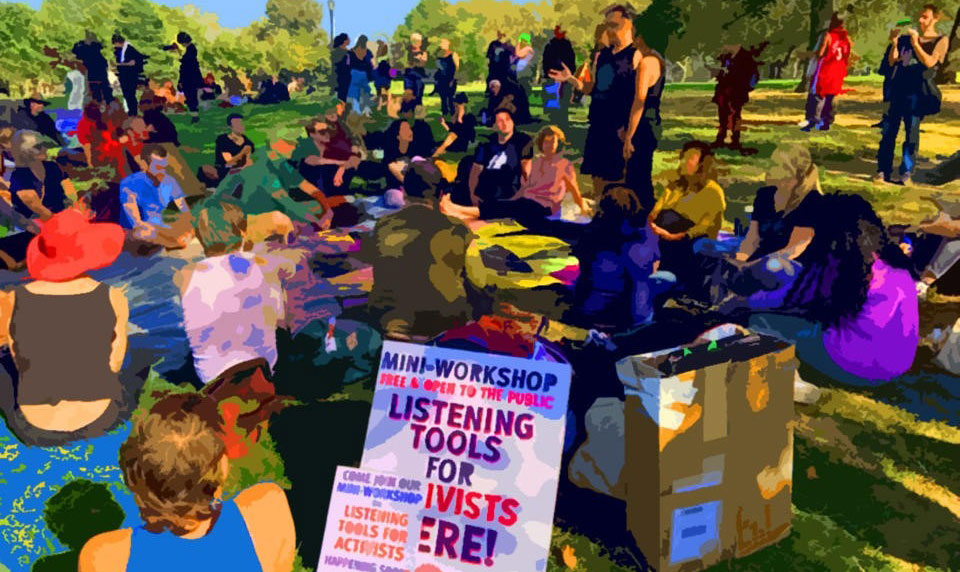
Dear Fashion: Let’s Step Up and Get Aligned
In a recent opinion editorial with WWD, CEO Colin Browne argues fashion needs to take more serious and coordinated action on sustainability. Read the highlights here!


When the calendar marks the beginning of the New York Climate Week, the world listens. This annual global summit brings together governments, businesses, and citizens to discuss solutions for a sustainable future, acting as a beacon of hope, innovation, and above all, action. But while dialogues, debates, and pledges mark the rhythm of the week, a key question remains: how do we move from awareness to driving measurable impact?
The Limits of Awareness
Awareness, as crucial as it is, can only take us so far. Climate change isn’t waiting for our boardroom discussions to wrap up or our pledges to turn into action plans. It’s happening here and now. While discussing the complexities of sustainability and policy is essential, it’s just one part of the equation. A climate conference, no matter how high-profile, must serve as a catalyst for real-world action across sectors and borders. We need a multi-faceted approach that combines policy initiatives, consumer action, and radical business transformations.
Policy as a Catalyst
Governments wield immense power in setting the sustainability agenda by implementing policies that encourage or even mandate sustainable practices. However, policy must be considered a floor, not a ceiling. Regulations should not only compel corporations to meet minimum requirements but also serve as a catalyst for innovation in sustainability.
One aspect often overlooked is the importance of harmonization of policy across jurisdictions. Inconsistent policies can create fragmentation and add complexity for global industries like textiles and apparel. The value of policy harmonization lies in creating a unified sustainability framework that streamlines compliance and facilitates cross-border collaboration. When policies are harmonized, it encourages widespread adoption of best practices and allows for a more effective pooling of resources, technologies, and expertise.
By exceeding the foundational structure that policy provides, corporations can focus on making strides toward more transformative, long-lasting impacts in sustainability. This harmonized approach opens the door for collective action
Consumer Power
Consumers are more than just passive end-users; they are powerful agents of change that can drive sustainability from the ground up. When they make eco-conscious choices, it sends a resounding message up the supply chain, encouraging brands to adopt more sustainable practices. However, the efficacy of this “power of the wallet” is heavily dependent on the availability of credible information and transparency. Brands have a responsibility to furnish consumers with accurate, easily accessible data about the sustainability of their products, which can be verified by trusted third-party assessments.
The digital age has further amplified this consumer power. Social media platforms and online communities not only allow consumers to make informed decisions but also turn individual choices into collective action. This significantly magnifies their impact on corporate sustainability policies. In essence, when armed with reliable information and supported by a community of like-minded individuals, consumer power can act as a formidable force, pushing the industry toward lasting changes in sustainability.
Business Transformation
Finally, the role of businesses in driving sustainability is irreplaceable. Businesses are in a unique position to drive substantial change, from innovation in eco-friendly technologies to restructuring their supply chains for minimal environmental impact. Beyond implementing greener and fairer practices, businesses can influence their partners, suppliers, and even competitors to adopt similar approaches, thereby magnifying their impact.
Furthermore, through ethical sourcing and fostering a corporate culture of sustainability, companies can create a ripple effect that extends far beyond their immediate sphere. By turning sustainability into a business advantage, companies are not only helping the planet but also securing their place in the future marketplace.
This is where organizations like the Sustainable Apparel Coalition (SAC) are making a measurable difference. With the textile and apparel industry ranking as one of the most environmentally taxing sectors, SAC’s work is all the more important. Through tools like the Higg Index and the newly enhanced Higg Facility Environmental Module (FEM) 4.0, SAC not only measures but actively encourages improvements in sustainability performance.
The Higg FEM 4.0, which will be launched in November, offers an unprecedented depth of facility-level performance metrics. It captures data with enhanced granularity related to waste management, energy use, and even social responsibility. Fully restructured, the Higg FEM 4.0 data is better aligned to support reporting to GHG Protocol, Science-Based Targets initiative, ZDHC Roadmap to Zero, and more. Additionally, new features have been implemented to reduce the risk of human error and guide facilities precisely when they need it most. This enhanced version provides actionable insights that support companies to move beyond mere compliance and establish a more substantial, measurable impact.
Furthermore, SAC is at the forefront of promoting collective action, bringing together businesses, governments, academics and NGOs, amongst others, for holistic systemic change. By offering resources and tools that aim for real-world impact rather than just ticking off compliance checklists, SAC is playing a pivotal role in setting a new bar for sustainability in the textile and apparel industry.
In an era where the climate crisis is accelerating, SAC’s mission is firmly aligned with the foundational ethos of New York Climate Week: collective action and measurable impact. It’s not just about dialogue, but about setting agendas and taking steps—steps that make a lasting impact.
As New York Climate Week draws the world’s attention to the imminent challenges we face, let’s remember that awareness is the first step on a longer journey. Policy, consumer choice, and business innovation are the milestones we must reach, and organizations like the SAC are working tirelessly to make change happen.
As we look towards a more equitable and restorative future, let’s strive to make every week a Climate Week, each day a day of action, and every moment an opportunity for impact.
New York Climate Week isn’t just a platform for discussion; it’s a launching pad for a sustainable future we collectively envision and build, one impactful step at a time.
With this in mind, I look forward to seeing you there!
Colin Browne, CEO, argues fashion needs to take more serious and coordinated action on sustainability.

Andrew Martin, EVP at Cascale, traces his visit to Hong Kong-based manufacturer Epic Group’s CIPL facility in Bangladesh showcasing sustainable innovation and a responsible future ahead.

At the end of June, Cascale published its 2023 Annual Report, showcasing many milestones, achievements, and a renewed strategic direction over the past year.